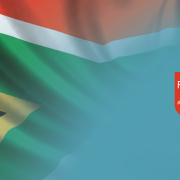|
Getting your Trinity Audio player ready...
|
Plans are afoot to tackle South Africa’s lackadaisical beneficial ownership regime. The Companies and Intellectual Property Commission (CIPC) has announced that it will implement a beneficial ownership (BO) information collection and storage regime as soon as regulations in that regard are promulgated.
Greater BO transparency is a crucial component in the fight against financial crime. A beneficial owner is defined as any natural person with a shareholding of 5% or more in any legal entity, or a person who exercises effective control of an entity.
BO transparency – when the true owner of an organisation or company is known, without complex ownership structures getting in the way – allows law enforcement agencies and other entities to work against money laundering, tax evasion, corruption, and other financial crimes. It prevents companies from operating in secret or being used as fronts by criminal syndicates, by exposing the channels by which money flows through a company structure, often across borders, and where it ultimately ends up.
At a March 2022 plenary meeting, the Financial Action Task Force (FATF) adopted amendments to its Recommendation 24 (R.24), which deals with transparency and beneficial ownership relating to legal persons. R.24 sets out the minimum standards that individual member countries – of which South Africa is one – must put in place to address this matter of BO transparency, requiring that BO information be collected in a centralised register and that authorities verify the data to ensure its accuracy.
In October 2021, a FATF evaluation of South Africa – in which the CIPC participated – found 67 deficiencies in South Africa’s anti-money laundering and counter financing of terrorism (AML/CFT) legislative framework. South Africa was tasked with addressing the deficiencies or risk being added to the FATF’s list of jurisdictions under increased monitoring – the grey list.
Despite a scramble to amend various laws pertaining to financial intelligence, the country failed to avoid greylisting and now must work with the FATF to tighten its AML/CFT laws.
One of the eight strategic deficiencies notes by FATF in its February 2023 evaluation of South Africa’s efforts to avoid greylisting, was that South Africa must ensure competent authorities have timely access to accurate and up-to-date BO information on legal persons and arrangements, and must apply sanctions when legal persons fail to comply with BO obligations.
Mandate to collect BO information
In a media release circulated on 1 March 2023, the CIPC explained that: “In one of the recommended actions contained in the mutual evaluation report, the CIPC was required to have a law which permits it to collect beneficial ownership of legal persons within its register. It was for this purpose that the General Laws (Anti-Money Laundering and Combating Terrorism Financing) Amendment Act 22 of 2022 was passed.”
The General Laws amendment act amends the Companies Act as well as the Trust Property Control Act, the Non-profit Organisations Act, the Financial Intelligence Centre Act, and the Financial Sector Regulation Act. Parts of the act are in operation, while most of the balance will come into operation on 1 April.
The new Companies Act amendments give the CIPC a mandate to collect beneficial ownership information, thus complying with the FATF recommendation mentioned above. To this end, the CIPC has been working with the National Treasury, the Financial Intelligence Centre, and other competent authorities in ensuring that the amendment act caters for BO requirements.
“The Commission has been putting measures in place in ensuring that it will have systems in place to enable it to collect such information and address the deficiencies that were highlighted in the FATF mutual evaluation report of South Africa,” said the CIPC in its recent media release.
When the relevant regulations are promulgated, the CIPC will implement the collection of BO information – the purpose of which, it said, is to ensure that the ultimate beneficial owners of entities on its register are known. This will, in turn, mitigate the abuse of corporate vehicles to facilitate money-laundering and the financing of terrorism, not to mention their use as a conduit for corruption in the awarding of lucrative government contracts.
CIPC commissioner Rory Voller said the organisation administers 2.1-million active entities in the public and private sectors, but currently only holds the records of legal owners and management entities in the form of members and directors.
“No record of company shareholders and beneficial owners is recorded by the CIPC. As such, the CIPC recognises its responsibility as one of the key role players in safeguarding the integrity of our regulatory environment in South Africa.”
In this way it is integrally placed to manage the risks associated with money laundering, and proliferation and terror financing activities.








